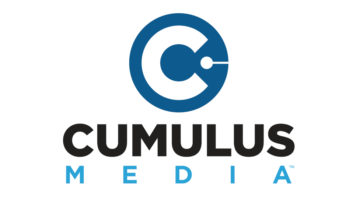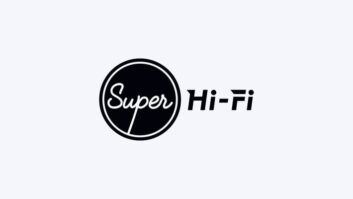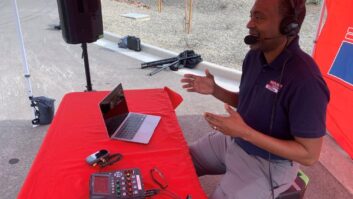Lew Dickey Eyes Top 150 Markets, Reflects on Recent Turbulence
At barely five years old, Cumulus Broadcasting already has traveled from the top of the market to near financial disaster, only to recover and again become one of the strongest performers in the broadcasting industry.
Lew Dickey Jr., who was literally born in radio — his father, Lew Dickey Sr., owned a cluster of stations in the Midwest — and veteran broadcaster Richard Weening formed the company with the intent of building clusters in small and medium markets.
Though still shy of his 40th birthday, Dickey already had experience as a station owner through his family’s Dickey Brothers Broadcasting Co. and as an analyst at Stratford Research, a media research firm.
Founded in the wake of the Telecommunications Act of 1996 that lifted caps on ation ownership, Cumulus quickly accumulated more than a hundred stations in less than a year in markets from Bangor, Maine to Odessa, Texas.
By early 2000, Cumulus owned more than 300 stations. It also had attracted nearly a dozen class-action lawsuits from investors after restating financial results for most of 1999, revealing that the company was out of cash.
Instead of collapsing, as some analysts had predicted, Cumulus rebounded, selling some of its assets to Clear Channel in exchange for cash to keep the rest of the company afloat.
Dickey was able to bring the company back to financial health; today, analysts regard Cumulus as one of the stronger stocks in broadcasting.
In recent months, the reborn Cumulus spent $230 million to pick up 18 radio stations in the wealthy northern suburbs of New York City from Aurora Communications.
When the latest round of deals is complete, Cumulus will own 243 radio stations in the United States, placing it within the top 10 radio groups in America in revenue — more than $268 million in 2000, according to BIA Financial Network — and second overall in number of stations.
And while Cumulus stock is far from its high in early 2000 (trading at one point at more than $55 a share), it’s now more than four times higher than its low point in late 2000, when it flirted with the $3 mark.
Radio World’s Scott Fybush spoke with Chairman and CEO Lew Dickey about the company’s outlook and goals.
RW: A year and a half ago, many in the business were giving your company up for dead. What did it take to turn Cumulus around?
Dickey: First and foremost, we had to change the culture of the company, inject a healthy dose of discipline into the organization.
We had to realign expenses to be more in line with companies like Citadel and Clear Channel in the markets we compete in. We’re the only (radio) company to grow EBITDA (earnings before interest, taxes, depreciation and amortization) over the last four quarters as a result.
RW: What had the company culture at Cumulus been like?
Dickey: It was 125 acquisitions that came together very quickly, so there wasn’t enough time to create one. It was sort of a rudderless ship.
We created a very strict budget discipline and cost controls. We’ve got a group of people focused on looking at ways to cut costs wherever possible without cutting into product. Our focus is live and local; we eschew the notion of “do it from a box,” and I think our ratings have been extremely positive as a result.
RW: What’s your outlook on ad revenue for 2002?
Dickey: I can’t make too many predictions, but we’re optimistic that a turnaround will happen and we’ll be there when it happens.
RW: What about the after-effects of September 11?
Dickey: It was a huge factor; it took 5 percent off the industry’s growth rates for the year and I think 2002 will be affected by it as well.
RW: Cumulus is one of the few groups to announce a big acquisition since then. Let’s talk about the purchase of the Aurora group and of Dickey Brothers Broadcasting Company’s three Nashville stations, which Cumulus bought from you in December.
Dickey: We had two opportunities that were controlled by members of the board or insiders. These were fungible assets and rather than monetize them for cash, you had insiders willing to step up to the plate and say, “We’ll take the company’s paper instead of cash.” It’s a show of confidence in the company. (Ed. Note: Aurora was controlled by major Cumulus investor Bank of America, while the Dickey stations were privately held by Dickey and his family.)
RW: You founded the company on a base of small and medium markets, but you’re expanding into markets such as the New York suburbs, Nashville, Houston and Kansas City, the latter two through innovative FM signal move-ins. Is this a change of focus for Cumulus?
Dickey: Our median market size is now 162. I would look for Cumulus to be focused in the top 150 markets going forward. We’ve worked hard on some of our smaller markets in the 200s and we have no intention of letting them go.
(FM move-ins) are one component of our growth strategy that enables us to create some real value, but they’re just part of the strategy.
RW: In recent weeks, we’ve heard industry leaders call for a relaxation of the FCC’s “eight to a market” radio ownership cap and broadcast-newspaper cross-ownership rules. What’s your perception of the atmosphere now at the Powell commission? Would you support an increase in ownership caps?
Dickey: I would tend to define the market not as radio but as advertising overall. Our average in-market revenue share is 42 percent, but we’re only taking 6 or 7 percent of the overall advertising pie. Would we like to take more against the newspapers? Sure.
RW: What’s your view of satellite radio now that XM has launched?
Dickey: I hear it’s sound technically, and I never doubted it would be. But I think their demand forecast model is unrealistic … I don’t see them getting to a break-even rate anywhere near where they do.
It really has no impact on Cumulus; we’re 88 percent local (in advertising sales) and they’re not competing in our local markets.
RW: What about IBOC digital?
Dickey: We’re definitely behind that (Ibiquity) platform. The fact that it’s backward compatible, so people can listen to the same stations they’re familiar with, is important.
RW: Any new formats we should be looking out for?
Dickey: I don’t believe in gimmicks or fads. I spent a lot of time earlier in my career studying the preferences of listeners and I’m a fundamentalist.
We spend a lot of time going after mainstream formats — urban contemporary, adult contemporary, country and mainstream AOR.
RW: You grew up around top-40 AM radio, at your father’s station WOHO(AM) in Toledo, Ohio. Do you miss those days?
Dickey: Yeah, I do. I think it was good for our business and with our emphasis on local talent I think we can re-ignite that. When you see Clear Channel voicetracking smaller markets, it’s hard to develop that talent. There’s nobody out there recruiting them and teaching them the content side of the business.
RW: Does that extend to developing new engineers as well?
Dickey: That’s tough. We’re paying good wages in that field and we have to. I was hoping there’d be more availability (of talent) after the dot-com crash but I don’t see it.
In 2001, technical is the only side of the company that saw an increase in expenses.










